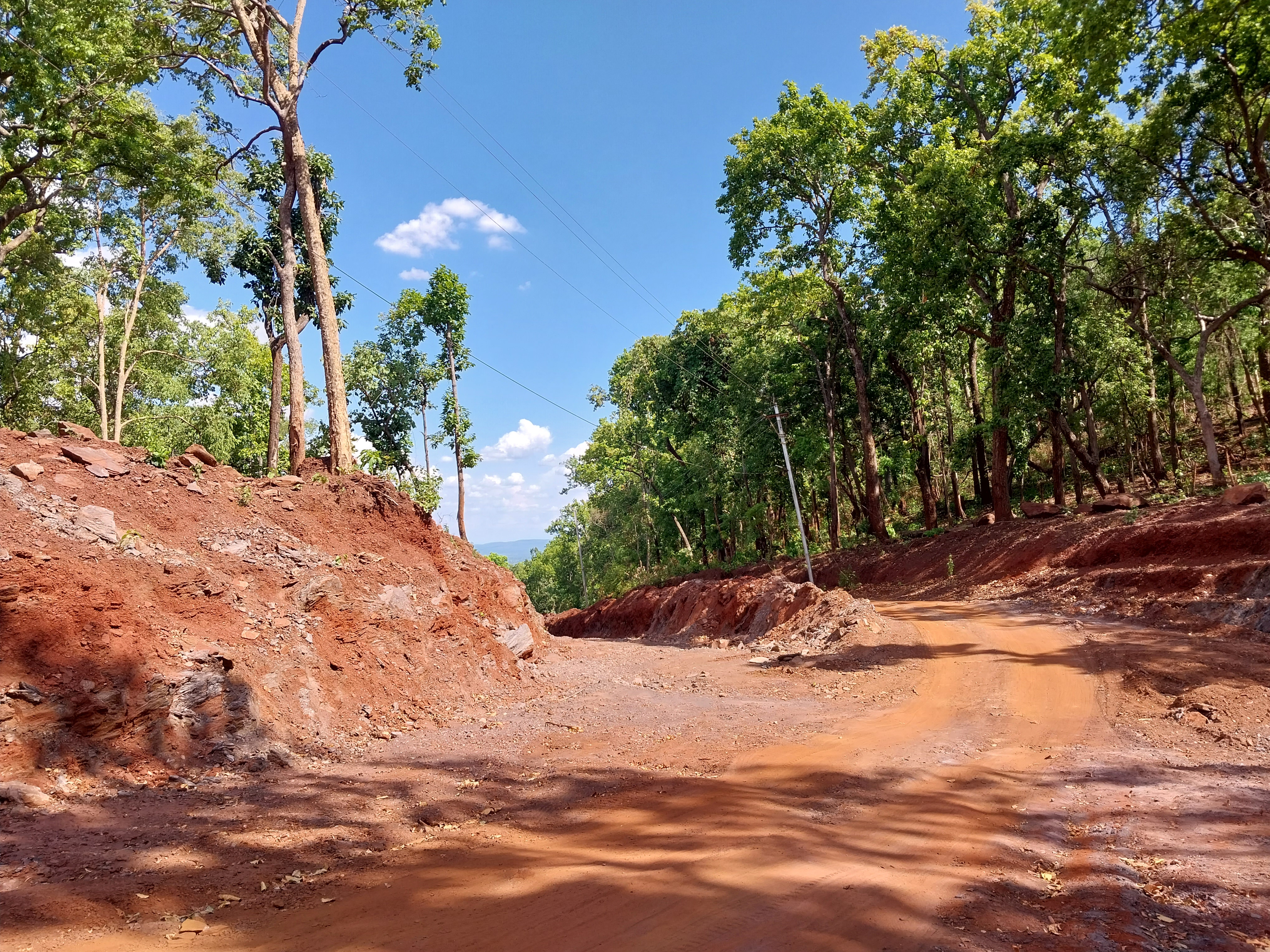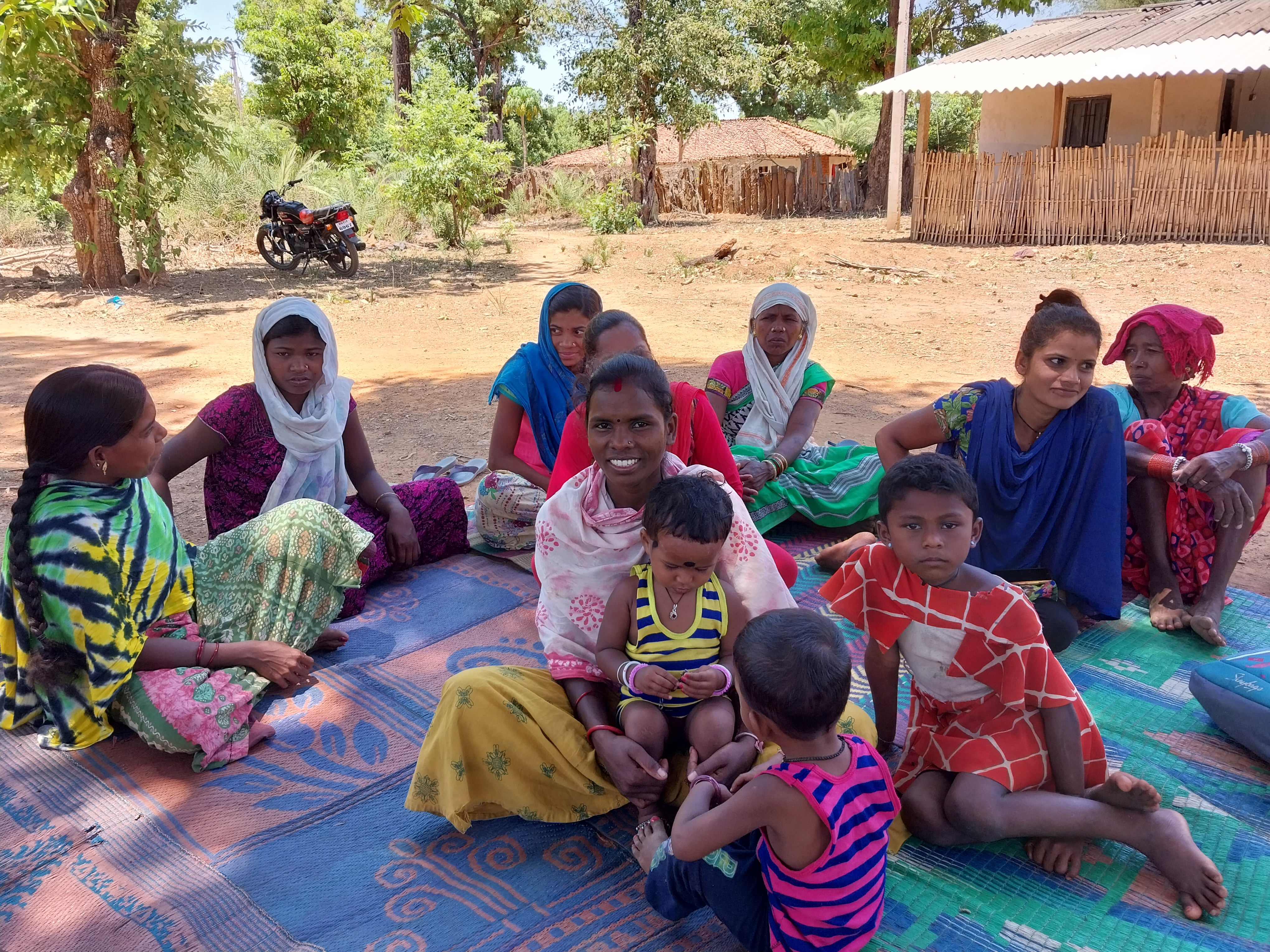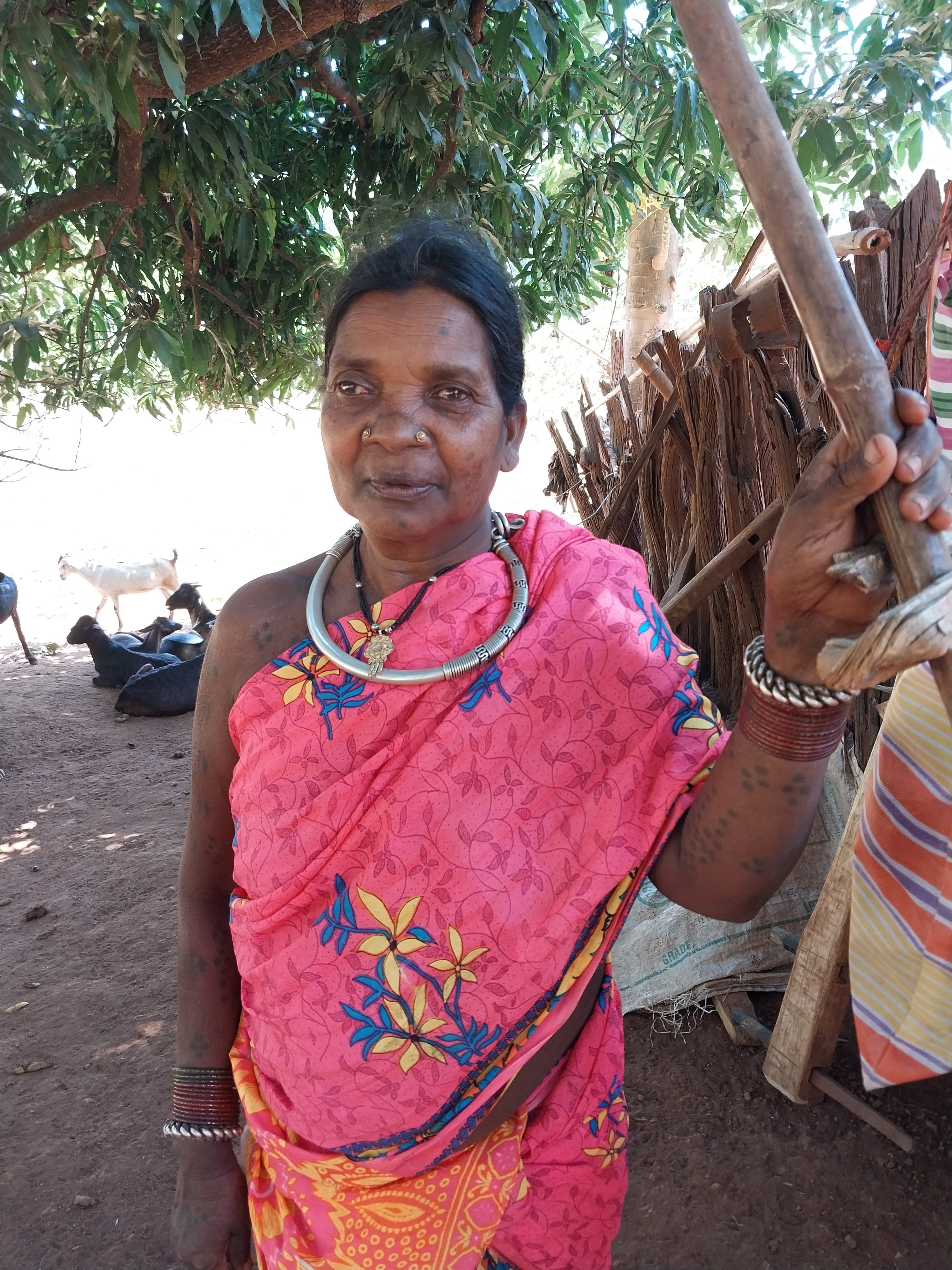
Residents of Khodgaon village in Narayanpur district of Chhattisgarh await the recognition of community forest resource rights in the midst of prevailing tension over the disputed Rowghat Mines Project, writes Deepanwita Gita Niyogi
Leaving behind her parental home in Bijapur, a southern Chhattisgarh district affected by Maoist insurgency, Rina Dugga arrived in Khodgaon around 2014 after her marriage. Dugga belongs to the Gond community, one of the largest tribal groups of India. Like many rural women, she depends on the forest for sustenance.
To empower tribal communities who have been historically marginalised, India passed the Forest Rights Act (FRA) in 2006 which allows them right over forest resources through the issuance of van pattas (land titles).
Chhattisgarh, in central India, has about 45 per cent forest cover, a precious resource to mitigate the effects of climate change. However, the mad rush for extraction of natural resources has become the cause of turf war between communities, insurgents and state-owned entities as the threat of deforestation looms large in tribal areas of the state.
Mining is one of the primary causes of deforestation. Apart from dense forests, Chhattisgarh has vast reserves of coal and iron ores. In recent times, widespread protests have broken out in places where tribals are keen on protecting forest cover by opposing mining.
Mindless mining
On a humid afternoon, lush forest and heaps of red earth greeted the eyes on the way to Anjrel situated on the hilltop. After a point, bikes failed to move uphill and walking was the only option to reach Anjrel, a scenic village near Khodgaon, where the fear of an uncertain future was palpable among residents.

“Mining has started. It is possible that Anjrel may be displaced. Those living below like the people of Khodgaon will also face severe problems. Many people cultivate mustard and paddy. If mining activity increases what will happen to our cultivable lands?” questioned Phulwa Mandavi.
The Rowghat mines project spread over the Matla forest reserve spans Narayanpur and Kanker districts of Chhattisgarh in the sensitive Bastar region. With an estimated reserve of 731.93 MT, the lion’s share belongs to the Bhilai Steel Plant, a unit of the public sector Steel Authority of India Limited. Supply will take place over the next 20 years.
During an informal gathering at Khodgaon, Dugga arrived with her child, clad in a yellow saree. “I am worried about the status of the community forest resource rights (CFRR) which empowers communities to manage forest under the FRA. The people of the village placed the CFRR claim in August but are yet to receive the title.” The land title is usually a one-page document.
Besides collection of minor forest produce throughout the year, Dugga’s livelihood also depends on five acres of paddy land. But at present everything hangs in balance with many residents being called to the local police station after a scuffle broke out in September.
Conflict is nothing new here and has been on since 2009 with many locals opposing the Rowghat project. Dugga pointed out that gram sabha meetings did not take place with the sarpanch (village head) in favour of the mines.
Recognising forest rights
After coming to power in 2019, Chhattisgarh Chief Minister Bhupesh Baghel emphasized on CFRR keeping in mind the vast Adivasi population dependent on forest wealth. The state has 7.5 percent of India’s tribal population.
Sharad Lele of the Ashoka Trust For Research in Ecology and the Environment, who is working in Chhattisgarh on FRA, said the Act has multiple rights but the most important one is CFRR which is given to communities to manage forest. Till June 2022, 3731 CFRR claims have been settled covering 1532316.866 hectares.
While Khodgaon’s residents await their CFRR title claim on 579.900 hectares, the presence of police and paramilitary personnel for protection of the mines is adding to the restlessness.
“Mining has started despite protest. Vehicles plying on the road carrying ore are posing a threat to the school and the anganwadi (child day care centre) in Khodgaon. Gradually, pollution will spread to cultivable lands and water sources. Locals will find it difficult to cross the road,” said Narsingh Mandavi, one of the protesters from Binjli village, some five km from Khodgaon.

His main concern is that entering the forest will be difficult for women in the presence of heavy security. Besides minor forest produce, many gather fuel wood from the forest as cooking gas is expensive.
Khodgaon resident Suresh Dugga, who works at the Ramkrishna Mission Ashram in Narayanpur, feared that as a result of massive tree felling, women would face difficulty in finding valuable things like mushroom, mahua (Madhuca longifolia) flowers, tendu leaves (Diospyros melanoxylon) and medicinal herbs. After the September incident, women are mostly avoiding grazing and foraging. A social activist working in the area, who wished anonymity, predicted that conflicts would rise in future. The situation is still tense in the village. Some residents spoke of being threatened and called to the police station for statements.
Awaiting a better future
Iron ore mining will affect almost 54 villages though the official estimate of 22 is much less. According to Narsingh Mandavi, most people in the area want the mines to shut down. Some are hopeful of the protest getting stronger in the coming days.
Amidst the prevailing tension, Dugga and her husband Digeshwar are also looking forward to filing individual claim on an acre of land under the FRA where she has constructed a house. But land measurements are not taking place with the patwari (one who keeps land records) being dissuaded from doing the job, she claimed.
Locals are being needlessly harassed for opposing the mines. “Even women are being called to the police station. While this is happening, ore is being transported illegally in tippers,” Nohrit Mandavi, associated with the Chhattisgarh Bachao Andolan, said.
Khodgaon resident Lakhan Nureti pointed out stepping out of homes and entering the forest have become grave issues. “Many people are being implicated in false cases. I am a farmer and have no idea what will happen to my field. Women are afraid to go to the jungle but nobody is bothered about us.”
(The story has been covered with the International Women’s Media Foundation’s Howard G Buffet grant.)











